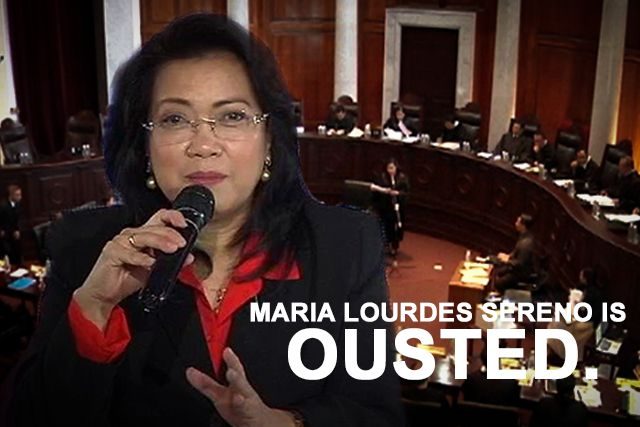The removal of Sereno as the Supreme Court’s chief justice had caused a commotion over the weekend dividing the opinion of the masses. Some had their melodramatic outcry that democracy just died when the Supreme Court removed Sereno, while some thought that Quo Warranto is illegal and Sereno should have been tried in the Senate. Here’s what Fr Ranhillo Calangan Aquino, the Dean of San Beda Graduate School of Law has to say in his Facebook account.
“It is unpardonable, at least for me, that people who know and who should know better lend themselves to the propagation of fallacy and misinformation.
Fallacy No. 1:
Entertaining the petition for a writ of quo warranto against the Chief Justice is an affront to the Senate.
Refutation:
Article VIII of the Constitution vests the Supreme Court with jurisdiction over petitions for writs of quo warranto. The Court is therefore merely exercising its jurisdiction. And nowhere does Article VIII provide “except against the Chief Justice”.
Fallacy No. 2:
An adverse judgment against the Chief Justice in the quo warranto case would be an attack on the judiciary and would set a bad precedent.
Refutation:
First, the Chief Justice IS NOT the judiciary. Second, then the JBC ought to do a better job and see that only truly qualified candidates are nominated.
Fallacy No. 3
The petition for quo warrato is groundless and baseless and should be dismissed.
Refutation:
That is for the Court to decide. That is a matter sub judice and under the Rules of Court, such matters should not be publicly debated, much less should public opinion be fostered either for the grant of the petition or against it.
Fallacy No. 4
Quo warranto is an unconstitutional shortcut. Impeachment is the only way to remove a Chief Justice.
Refutation:
Impeachment is ONE way of ousting impeachable officials. But when the appointments or elections of impeachable officials are assailed, the proper action is precisely quo warranto. What is provided for by the Constitution as a power of the Supreme Court cannot be unconstitutional.
Question: Should the petition prosper or not?
Answer: That is for NONE of us to decide except the Supreme Court, on the merits.”
While there are so many opinions arising because of the historic removal of Sereno, let us not forget that the 1987 Constitution specifies the final interpreter of the law is the Supreme Court, the highest court of the land.








